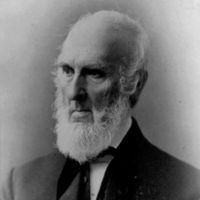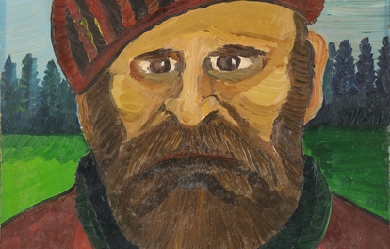Extract From
How has New England’s romance fled,
Even as a vision of the morning!
Its rites foredone, its guardians dead,
Its priestesses, bereft of dread,
Waking the veriest urchin’s scorning!
Gone like the Indian wizard’s yell
And fire-dance round the magic rock,
Forgotten like the Druid’s spell
At moonrise by his holy oak!
No more along the shadowy glen
Glide the dim ghosts of murdered men;
No more the unquiet churchyard dead
Glimpse upward from their turfy bed,
Startling the traveller, late and lone;
As, on some night of starless weather,
They silently commune together,
Each sitting on his own head-stone
The roofless house, decayed, deserted,
Its living tenants all departed,
No longer rings with midnight revel
Of witch, or ghost, or goblin evil;
No pale blue flame sends out its flashes
Through creviced roof and shattered sashes!
The witch-grass round the hazel spring
May sharply to the night-air sing,
But there no more shall withered hags
Refresh at ease their broomstick nags,
Or taste those hazel-shadowed waters
As beverage meet for Satan’s daughters;
No more their mimic tones be heard,
The mew of cat, the chirp of bird,
Shrill blending with the hoarser laughter
Of the fell demon following after!
The cautious goodman nails no more
A horseshoe on his outer door,
Lest some unseemly hag should fit
To his own mouth her bridle-bit;
The goodwife’s churn no more refuses
Its wonted culinary uses
Until, with heated needle burned,
The witch has to her place returned!
Our witches are no longer old
And wrinkled beldames, Satan-sold,
But young and gay and laughing creatures,
With the heart’s sunshine on their features;
Their sorcery—the light which dances
Where the raised lid unveils its glances;
Or that low-breathed and gentle tone,
The music of Love’s twilight hours,
Soft, dream-like, as a fairy’s moan
Above her nightly closing flowers,
Sweeter than that which sighed of yore
Along the charmed Ausonian shore!
Even she, our own weird heroine,
Sole Pythoness of ancient Lynn,'
Sleeps calmly where the living laid her;
And the wide realm of sorcery,
Left by its latest mistress free,
Hath found no gray and skilled invader.
So—perished Albion’s ‘glammarye,’
With him in Melrose Abbey sleeping,
His charmed torch beside his knee,
That even the dead himself might see
The magic scroll within his keeping.
And now our modern Yankee sees
Nor omens, spells, nor mysteries;
And naught above, below, around,
Of life or death, of sight or sound,
Whate’er its nature, form, or look,
Excites his terror or surprise,
All seeming to his knowing eyes
Familiar as his ‘catechise,’
Or 'Webster’s Spelling-Book.'


